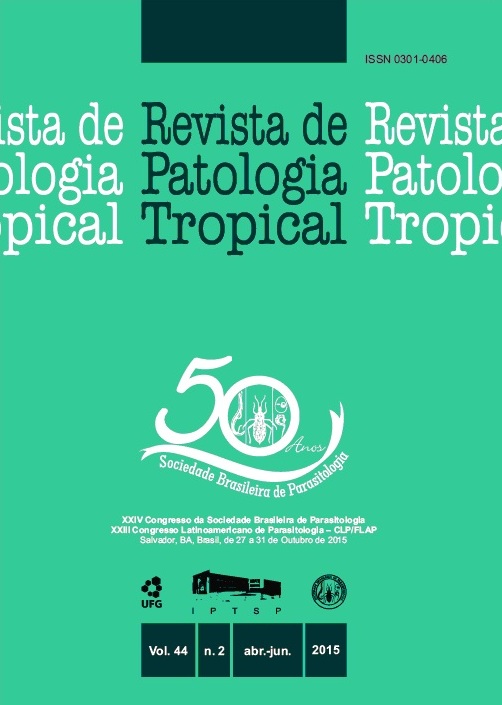PARASITOLOGICAL EVALUATION OF LETTUCES (LACTUCA SATIVA) MARKETED IN A MUNICIPALITY OF THE WESTERN FRONTIER, RS, BRAZIL
DOI:
https://doi.org/10.5216/rpt.v44i2.36646Keywords:
Parasites. Lactuca sativa. Vegetable. Contamination.Abstract
The consumption of lettuce (Lactuca sativa) can be an important means of transmission of severalparasitic diseases, so the increasing inclusion of vegetables in the diet of the world populationpresents an important challenge. The objective of this study was to evaluate the contamination oflettuce (L. sativa) marketed in the municipality of Itaqui (RS) by parasites of interest to public health.A sampling process was used, selecting supermarkets and local producers in the city of Itaqui. Weinvestigated 60 samples of lettuce (L. sativa) of the curly variety, from 30 local producers and 30local markets, all acquired at random. The lettuce samples were placed in clean plastic bags andidentified. The leaves were separated and washed in a glass container with 250 ml of sterile distilledwater. The wash water was analyzed using three parasitological techniques: direct examination,spontaneous sedimentation technique (Lutz) and flotation of zinc sulfate to 33% (Faust). Themorphological features of the parasite were examined by means of an optical microscope. Of the60 samples analyzed, 29 (48.33%) had some type of parasites. Of these, 19 (63.34%) were fromlocal producers and 10 (36.66%) from local markets. Eggs were found of Ascaris sp. (5%) andcysts of Giardia lamblia (38%) and Entamoeba sp. (13%). Checking for the presence of parasites,particularly helminths and protozoa, especially in vegetables, has great interest for public health,because it supplements health surveillance on the hygienic condition of the goods.Downloads
Downloads
Published
How to Cite
Issue
Section
License
The manuscript submission must be accompanied by a letter signed by all authors stating the full name and email address, confirming that the material has not been published or is under consideration for publication elsewhere, and agreeing to transfer copyright in all media and formats for Journal of Tropical Pathology. The authors will not be paid for published articles. They are solely responsible for the content of those articles, even if the Editor holds the right to adjust them to the norms of the journal.
The reviewers will not be paid for the peer review process.

